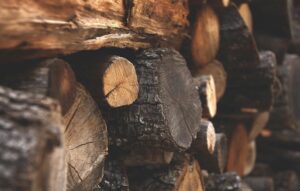
APEX predicts a 10% growth in Panamanian exports, excluding copper, in 2025.

Panama’s main export products include bananas, shrimp, fish, coffee, rum, and teak wood, among others, which have found strategic markets in the United States, the Netherlands, Taiwan, India, and China.
National goods exports (excluding copper) totaled $1.3 billion at the end of 2024, reflecting an estimated 10% growth compared to the previous year (2023). This dynamic is expected to continue in 2025 despite international economic challenges.
This was stated yesterday by the President of the Board of Directors of the Panamanian Association of Exporters (APEX), Bianca Morán, during the inauguration ceremony for the 2025-2026 term. “This year (2025) is very challenging because the world is facing an economic recession, but all exporters are committed to growth. Last year, we grew by 10% without copper, and this year we aim to maintain that growth rate,” estimated Morán.
She emphasized that these figures position Panama as a resilient and constantly evolving country. However, she acknowledged that while significant, Panama’s export numbers remain “modest” compared to other countries in the region, where monthly export volumes surpass Panama’s annual totals.
“We have been a success story in the export of services, leading the way and becoming the envy of the region. Now, let’s bet on goods to produce high-quality products and improve the distribution of wealth in our country,” Morán emphasized during the APEX board inauguration.
At the same time, she highlighted that despite certain limitations, Panama has made remarkable progress in recent years in key sectors such as fishing and agro-industry, which have shown significant growth.
She detailed that in the past three years, the fishing sector increased its share of national exports from 13% in 2021 to 25% in 2024, while the agro-industrial sector grew its share from 17% to 26% over the same period.
“These figures reflect Panama’s potential to diversify and strengthen its export offerings without copper,” Morán stated while breaking down the main export products and their key markets.
According to Morán, the main export products include bananas, shrimp, fish, coffee, rum, and teak wood, among others, which have found strategic markets in countries such as the United States, the Netherlands, Taiwan, India, and China.
However, “we still rely too heavily on basic products, and we must move towards exporting goods with higher added value and differentiation, as demonstrated by successful examples in medicines, detergents, personalized liquors, and specialized packaging,” Morán expressed.
Employment Driver
Exports are also a key driver of employment. Currently, they contribute to more than 100,000 jobs nationwide, although there are 24,000 fewer salaried workers compared to 2012, and informality is on the rise.
“The export sector not only drives the economy but also generates well-being in our communities. We are convinced that by working together, with a government that fosters private enterprise, supports innovation, and acts as a facilitator, we will achieve our goal: to establish Panama as a leader in sustainable and high-quality exports,” emphasized Morán.
Bianca Morán
President of the Board of Directors of APEX
“This year (2025) is very challenging because it is a year of global economic recession, but all exporters have the goal of growing. Last year we grew by 10% without copper, and this year we expect to maintain that growth rate (10% without copper),” she concluded.

About us
Ecotopia Teak, S.A., we are a family-owned company dedicated to reforestation, harvesting, and exporting wood from commercial plantations. We work under high production standards and with social responsibility to obtain high-quality wood according to the needs and demands of national and international markets. Additionally, we actively contribute to the local economy by creating employment opportunities in the communities where we operate. Our commitment is to lead the industry in sustainable reforestation and wood production, preserving our natural resources and building a greener and more sustainable future.

